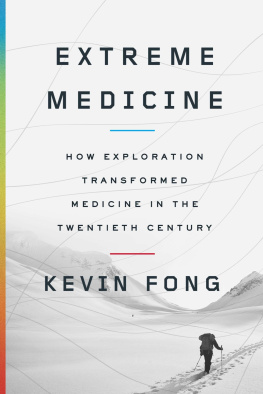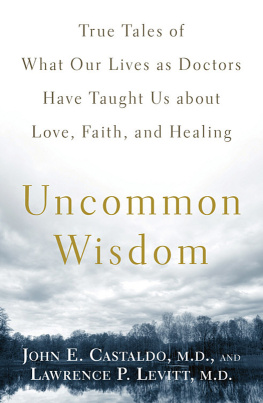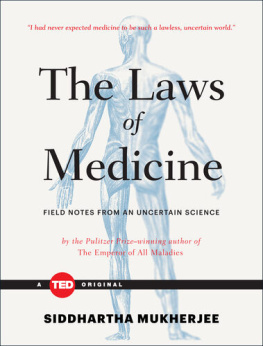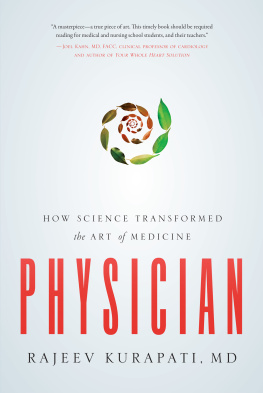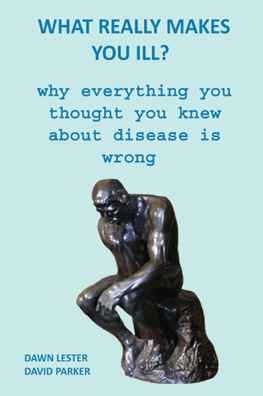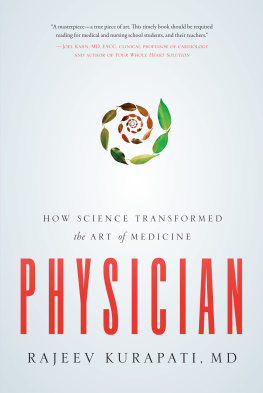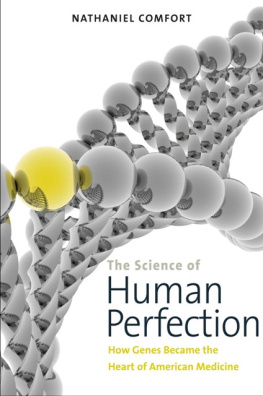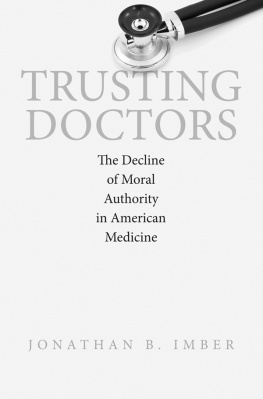THE PENGUIN PRESS
Published by the Penguin Group
Penguin Group (USA) LLC
375 Hudson Street
New York, New York 10014

USA Canada UK Ireland Australia New Zealand India South Africa China
penguin.com
A Penguin Random House Company
First published by The Penguin Press, a member of Penguin Group (USA) LLC, 2014
Copyright 2012 by Kevin Fong
Penguin supports copyright. Copyright fuels creativity, encourages diverse voices, promotes free speech, and creates a vibrant culture. Thank you for buying an authorized edition of this book and for complying with copyright laws by not reproducing, scanning, or distributing any part of it in any form without permission. You are supporting writers and allowing Penguin to continue to publish books for every reader.
Published in Great Britain under the title Extremes: Life, Death and the Limits of the Human Body by Hodder & Stoughton
LIBRARY OF CONGRESS CATALOGING-IN-PUBLICATION DATA
Fong, Kevin.
Extreme medicine : how exploration transformed medicine in the twentieth century / Kevin Fong.
pages cm
Includes bibliographical references and index.
ISBN 978-0-698-15161-1
1. First aid in illness and injury. 2. Extreme environmentsHealth aspects. 3. Adventure travelHealth aspects. 4. Space flightHealth aspects. I. Title.
RC86.7.F66 2014
616.02'52dc23
2013028124
While the author has made every effort to provide accurate telephone numbers, Internet addresses, and other contact information at the time of publication, neither the publisher nor the author assumes any responsibility for errors, or for changes that occur after publication. Further, publisher does not have any control over and does not assume any responsibility for author or third-party Web sites or their content.
Version_1
For Dee, Jack & Noah
Some of the material in this book draws upon my experience as a doctor. Where necessary, the case details of patients I attended, as well as the names of staff involved, have been altered to protect confidentiality.
CONTENTS
INTRODUCTION
L ater this century a small crew of people will find themselves spiraling toward Mars from deep space, on their way to becoming the first human beings to set foot on the surface of the Red Planet. They will have crossed hundreds of millions of interplanetary miles in the process, traveling farther from Earth than anyone in the history of their species. They will have left their home planet behind, launching through the sky on a rocket-propelled journey of breathtaking violence, slipping the narrow layer of atmosphere smeared around Earth that supports human life. They will have lived inside a machine for many months, a speck set in sharp relief against the void of space, having endured a journey of hazards unparalleled in the field of exploration.
It sounds like a preposterous endeavor. But when it comes to exploration, we have come a long way in a short time. A century ago, there was still white space on the maps of the world, places that remained unexplored. Cartographers at the turn of the twentieth century still referred to the landmass of snow and ice to the south as the supposed continent of Antarctica. They were able to illustrate its coastline in only vague detail.
Through advances in science, engineering, and technology, we have moved forward at a breakneck pacesuch that today we talk of the surface of Mars in much the same way that we might have discussed the unknown southern continent of Antarctica only a century ago. We arrived at this incredible peak of human exploration by coming to know the limits of human physiology and then cloaking it in increasingly sophisticated systems of artificial life support. In large part, we can successfully protect our fragile form from the extremes that the physical world has to offer.
As we conquered the physical world in the twentieth century, we mastered the terrain of the body as well. Programs of public health brought vaccination and better sanitation. With antibiotics these advances greatly increased our expectations of life and longevity. But on this foundation we mounted even more ambitious assaults against disease and injury. We specialized, mastered the technique of anesthesia, learned to operate safely upon the human heart, developed new systems of trauma care, dared to transplant organs, and discovered how to manipulate the immune system. We went on to create the new specialty of intensive-care medicine, a platform from which today we launch our most ambitious surgeries and medical interventions. These are but a few of the innovations that combined to create our audacious modern survival.
These twin pursuits of the last hundred years, exploration and medicine, have changed the course of human lifeand death. They also profoundly informed each other. Its not so much that we drew direct lessons from our endeavors in hostile environments. Rather, because of our exploration of the physical world, we came to accept that the extremes of illness and injury could not be overcome without almost total reliance upon artifice of science and technology. Often it took years of research to perfect that artifice. In the twentieth century our exploration of the limits of the human body and those of the physical world revolutionized the way we saw ourselves and the lengths to which we were prepared to go to protect human life.
In retelling the story of how we arrived at this point in medicine, we usually relate an abbreviated history, a tale of steady progress across the century. But when considered more closely, the events that led to these innovations tell a different tale. The path to progress in medicine looks less like the plodding inductive advance of science and more like the haphazard endeavor of exploration. To fully appreciate either, we must see both in parallel.
Seeing medicine through the lens of exploration, and vice versa, is something I have forced myself to do. I have spent my adult life engaged in both pursuits and in trying to reconcile one with the other. I majored in astrophysics at University College London before going on to study medicine. Toward the end of my medical studies, I was accepted onto a student training rotation in aerospace medicine at NASAs Johnson Space Center in Houston.
It was the realization of a long-held ambition and a way to indulge my childhood fascination with human spaceflight. I found excuses to go back to Houston as often as I could, gaining far more from the experience than NASA ever gained from me. I led a double life shuttling between Houston and the hospital wards. Id leave a punishing on-call stretch in a UK hospital to fly across the Atlantic and sit in on a meeting where people talked, straight-faced, about how NASA might best get people to Mars.
I used to feel guilty about indulging my space-age passion for exploration when there appeared to be so many questions to address in the field of terrestrial medicine. But later, as I specialized in intensive-care medicine, I began to understand what we were up against in trying to treat the extremes of illness and disease. Despite the advanced patient monitors and life-support machines, despite the endless reams of information we gathered and the perpetual vigilance, when confronted by the challenge of critical illness, we often failed miserably. I began to wonder which was the more ridiculous pursuit: standing at the end of a bed, tilting at the windmills of critical illness, or staring down telescopes at destinations that lay waiting to be explored.

